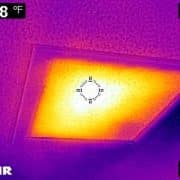The Home Inspector and the Real Estate Agent Relationship
The home inspector and the real estate agent have a unique relationship. In most cases, this relationship is good. Both the home inspector and the real estate agent tend to look out for the home buyer’s best interest when considering a home for purchase. However, you may hear about this relationship becoming a strain on either party or within specific cases. Stories claim some real estate agents try to pressure the home inspector to “take it easy” on their inspection with a concern that any major issue with the house will kill the deal. I promise you that even if a real estate agent tries to pressure a home inspector, they still have the home buyer’s best interest in mind. The relationship between a home inspector and a real estate agent can become very delicate but there are a few things you should know.
Use the Inspector your Agent refers
If you trust your real estate agent then you should trust their reference. Your agent doesn’t just want to sell you a house, they want to sell you a home. When an agent knows and trusts a home inspector to do a good job they will always refer that inspector. You should consider their reference first. If your agent is on your side then you know the home inspector will be too. That being said, you must understand that the home inspector’s job is to make you aware of any potential problems with the home. We are not trying to ruing your “dream home” or break your heart. At the end of the day, you still get to decide if you want to purchase the house or not but now you can make a much more informed decision.
Let the Home Inspector do their job
So many home buyers quake at the thought of a home inspection. Especially first time home buyers. They get so worked up that the home inspector is going to find something that will completely dash their dreams of buying the house they have fallen so in love with. But you have to let the inspector do their job. Do you want to move into a house and find out after 6 months that you need a new roof? Which can cost upwards of $10,000 by the way. Of course you don’t! If there is ever a time to spend money on a home it is to make sure you are aware of exactly what you are purchasing before you complete the transaction.
Trust your instincts
There are a few cases where the home buyer does not feel comfortable with their real estate agent. For whatever reason, they just don’t trust that their agent is on their side. In these same cases, being open and honest with your agent might be all you need. Sometimes it’s a miscommunication, sometimes personalities don’t blend, etc. But whatever the reason might be, don’t stay with an agent you don’t feel comfortable with. Purchasing a home is one of the biggest decisions you will make in your life – both financially and emotionally. You want to go through that process with someone you trust.
You know you can trust Divinity Inspections to perform a thorough inspection on your home. We will always walk you through our reports, explain everything we find, answer all of your questions, and even give you references if you need any. We also work with some really fantastic real estate agents that we are happy to refer. Because referrals go both ways! Contact us today and tell us how we can help.




